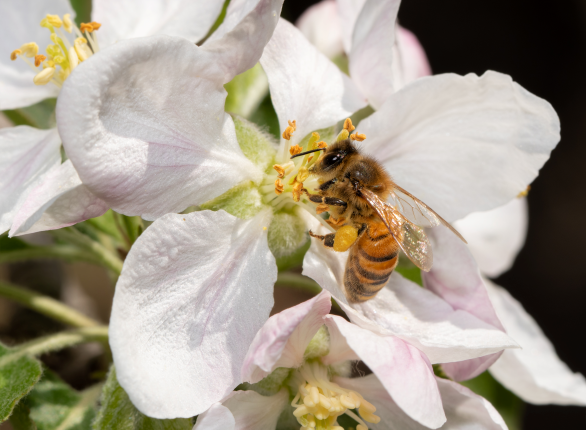 Pollination is essential for fruit production, and many fruit trees rely on insects, especially bees, to transfer pollen between blossoms. If you don’t see bees, your trees may still set some fruit, but yields are usually smaller, and fruit quality can be reduced. Some trees can self-pollinate or use wind pollination, but the majority of fruit trees benefit greatly from insect pollinators.
Pollination is essential for fruit production, and many fruit trees rely on insects, especially bees, to transfer pollen between blossoms. If you don’t see bees, your trees may still set some fruit, but yields are usually smaller, and fruit quality can be reduced. Some trees can self-pollinate or use wind pollination, but the majority of fruit trees benefit greatly from insect pollinators.
A lack of visible bees is a common concern in Nevada and other dry regions, which poses a serious challenge for effective pollination. The good news is that you can encourage pollinators by planting pollinator-friendly flowers, providing habitat, and avoiding pesticides harmful to beneficial insects. Research shows that increasing pollinator diversity and abundance not only improves fruit set but also leads to bigger, healthier, and better-quality fruit.
For practical ideas on how to create pollinator habitat and support beneficial insects in your orchard or garden, see this resource: Increase Crop Yields by Managing Pollinator and Beneficial Insect Habitat in the Pacific Northwest (SARE Project).
Waaswa, A.
2025,
Will my fruit trees pollinate if I don’t see any bees?,
Extension, University of Nevada, Reno, FAQ


